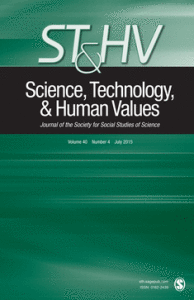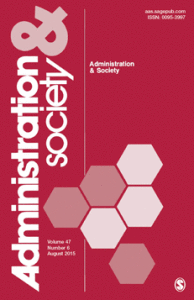This line of research was developed as part of the “Translating Institutions” project, funded by the European Commission’s Seventh Framework Programme, Marie Curie Actions. It adopts a performative, materially-grounded framework that conceives of government digitization programs as processes that can make visible longer-term phenomena of state transformation.
I am particularly interested in Governance by Technologies: how relational patterns are inscribed in minor technical details. In this respect, governance by technologies largely overlaps with the Politics of Code, when it comes to IT.

- Please feel free to drop me a line to receive a free copy
Integrating information systems (IS) has become a key goal for governments worldwide. Systems of ‘‘authentic registers,’’ for instance, provide government agencies with information from databases acknowledged as the only legitimate sources of data. Concerns are thus arising about the risks for democratic accountability constituted by more and more integrated governmental IS. Studies call for a new research agenda that investigates the redistribution of authority and accountability entailed by interoperable IS. This article contributes to this endeavor by suggesting the ‘‘vectorial glance’’ as a research framework that works along two lines. First, by recovering the science and technology studies notion of ‘‘infrastructural inversion,’’ it looks at the technical minutiae of interoperability projects as strategic sites where institutional shifts—and eventually state transformation— can become visible. Second, by defining interoperability as a performative process of boundary reordering, it opens research to the possibility that institutional identities be reconstituted along different lines. Just as vector graphics are based on paths that lead through control points without being bound to underlying pixels, so the vectorial glance runs across boundaries without implicitly assuming that they are immutable and/or a priori relevant for the analysis. This article draws on a case study observed while working at a major project of civil registers integration in Italy.
The line of research on the Governance of Failing Technologies was developed as a further outcome of the “Translating Institutions” project. It investigates the relationship between the way failing ICT projects are framed in political settings and by scientific/industry intermediaries, and the organizational and political consequences of specific frames. It also provides some assessment tools and suggestions to policy makers.

- Please feel free to drop me a line to receive a free copy
Government information systems failures are filling not only newspapers, but also parliamentary and administrative reports. This paper deals with a case in which information and communication technologies (ICT)-related failure claims introduced by the media influenced the parliamentary agenda, and intra-governmental relations. Drawing on a narrative analysis of a Dutch parliamentary commission’s hearings, it argues that the way the issue was initially framed by the media and then adopted, un-problematized, by Parliament steered the direction of action toward specific administrative solutions, thus shaping the landscape of possible organizational alliances. The paper recommends a proactive role of parliaments in framing ICT projects.
Pelizza, A. and Hoppe, R. (2014), ‘Wil je ICT-problemen oplossen? Maak dan controversen zichtbaar!’, Binnenlands Bestuur.
- Dutch version on Binnenlands Bestuur
- English version: Start from Controversies
If we want to reduce failure rates in government ICT projects, we suggest to come back to think why we are doing that; who are the stakeholders that not only have been involved up to now, but that should be involved from now on, in order to steer ICT deployment in a more fruitful direction. As the Dutch-grown fortunate tradition of Science and Technology Studies suggests, turning politically and financially vulnerable projects into successes requires having the right network of countervailing powers and allied stakeholders.
Second, if we do want to stick to a central coordinating body, then its main task could be making sure all stakeholders around an ICT project are represented in a project-based governance network, with no important stakeholders forgotten, or sidelined, and let them advise the politically accountable minister.
Third , the much contested “ICT dashboard” could be redesigned accordingly, to make this network of alliances and controversies visible and transparent, also to outsiders.